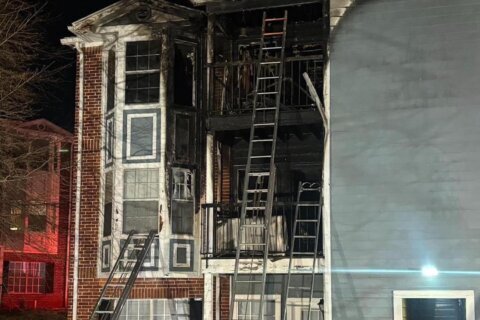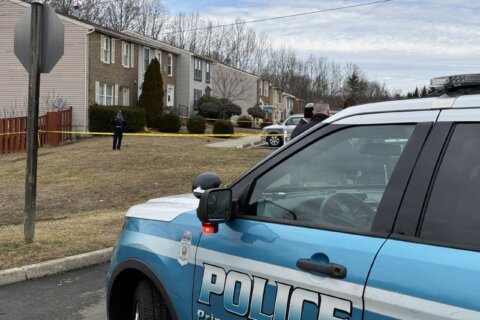This article was republished with permission from WTOP’s news partner InsideNoVa.com. Sign up for InsideNoVa.com’s free email subscription today.
This article was written by WTOP’s news partner InsideNoVa.com and republished with permission. Sign up for InsideNoVa.com’s free email subscription today.
A change in how Prince William County Public Schools organizes its tenure scale has caused an uproar among some of the county’s longest-tenured teachers, at the same time division leadership is touting historic wage increases for all school system employees.
Just as the Prince William Board of County Supervisors was giving the final sign-off on the $1.4 billion schools budget for fiscal 2023, teachers began reaching out to InsideNoVa and posting on social media about receiving step decreases for the 2022-23 school year. One middle school teacher told InsideNoVa he was dismayed to be going from step 20 in the current school year to step 17 for 2022-23.
“Steps” are teacher levels that correspond with salary. For the most part, they are meant to correspond with an educator’s tenure, but they are not meant to represent the number of years a teacher has been in the classroom. At times when budgets are tight, school divisions will often withhold step increases for all teachers from one year to another.
Still, school leaders point out the increase in teacher pay from this year to next will be greater than it’s been in over a decade, to the tune of 7% on average, according to the division. And while percentage gains will be the highest for the least experienced teachers, Chief Human Resources Officer Donna Eagle told InsideNoVa that nearly every county educator can expect a significant raise.
“We’re really excited,” Eagle said of the raises that teachers and other employees are set to receive in the coming school year.
According to Eagle, the division’s recent compensation study found that the county’s newer teachers were behind the market in terms of pay, whereas those in the top third of the scale were, in some cases, beating the market. Division leadership, she said, is trying to balance that to some degree.
Of the 7,058 division employees currently on the teacher pay scale, Eagle said that roughly 5,500 will receive raises of more than 7% if they choose to return to the county’s school system next year. And of those 5,500, 4,191 will see raises of between 10.3% and 11%, according to Eagle.
But while the previous step scale began at number four and went up to step 34, the scale for next school year will run from one to 30, and the teachers at the very top of the scale this year will only receive a cost-of-living raise. On the new 1-30 scale, teachers between steps 21 and 30 with only a bachelor’s degree will range in salary from $98,456 to $134,381. Last year, teachers with only bachelor’s degrees at the 10 highest steps earned between $97,642 and $129,217. Salaries are higher for teachers with more education.
“Part of our strategic plan is to ensure that we’re offering regionally-competitive pay, and as a result of our studies, we realize that teachers early- and mid-career are really lagging the market,” Eagle told InsideNoVa.
But some more experienced teachers say they’re disappointed to not be seeing bigger salary bumps.
One Dale City Elementary School teacher said she was going from step 21 on the old chart to number 17. As a “master’s plus 30” teacher, she’ll go from a salary of $93,958 to $97,592, a raise of nearly 4%.
She said she was aware of the step changes ahead of time from several messages sent out to teachers about the realignment. But she was expecting a more uniform percent raise.
“What irks me the most is that I have 17 years in the county. I have 24 years teaching in the area,” she told InsideNoVa in an email exchange. “So why, being a veteran teacher, am I paying the price? I’ve had steps frozen over the years, and now you change the whole step process and state that steps do not equate to years.”
Teachers have until mid-June to accept their new 195-day contracts.
Division leaders say they’ve been trying to warn teachers about the changes for some time.
“Although the step number where an employee is placed will be changed, every employee’s salary will increase. A step simply represents evenly spaced increments of pay rates within a paygrade,” a March email from Superintendent LaTanya McDade and Eagle to teachers said. “Steps do not equate to years of experience, although that is a common misconception.”
School Board Chair Babur Lateef accused the Prince William Education Association of trying to “stoke some anger that doesn’t really need to be stoked” as part of its collective bargaining effort.
PWEA President Maggie Hansford declined to comment on the issue.







